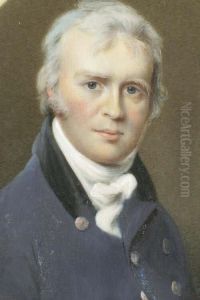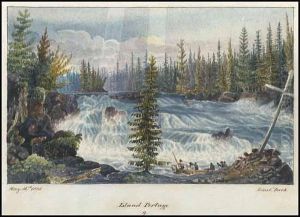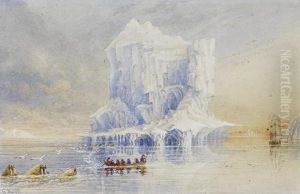George, Admiral Back Paintings
George Back was a British Royal Navy officer, explorer of the Arctic, and artist born on November 6, 1796, in Stockport, Cheshire, England. His naval career began at an early age, and he was present at the Battle of Trafalgar as a young teenager. This experience at sea would shape his future endeavors.
In the years following his early naval service, George Back became closely involved with Arctic exploration. He participated in several expeditions, most notably with John Franklin, to map the uncharted territories of Northern Canada. These expeditions aimed to find the Northwest Passage, a sea route connecting the Atlantic and Pacific Oceans through the Arctic Ocean.
During these expeditions, Back proved to be not only a capable officer but also a talented artist. He documented the landscapes, peoples, and experiences of the Arctic through his sketches and paintings, which were later used to illustrate expedition reports and for public lectures. His artistic work provided valuable insights into the harsh conditions and beauty of the Arctic, contributing to the public's interest in these remote regions.
Back's most significant solo expedition was the search for the lost Franklin expedition in 1836-1837, where he traveled extensively through what is now the Canadian Arctic Archipelago. Although he did not find Franklin on this expedition, his efforts contributed to the mapping and understanding of the region.
Throughout his life, George Back was recognized for his contributions to exploration and the arts. He was awarded the Royal Geographical Society's Founder's Gold Medal in 1834 and was knighted in 1839 for his services to Arctic exploration. His legacy includes the geographical features named after him, such as the Back River and the Back Archipelago in Nunavut, Canada.
George Back passed away on June 23, 1878, in London. His life bridged the worlds of nautical exploration and art, leaving a lasting impact on both fields. His detailed and evocative artwork serves as a historical record of early 19th-century Arctic exploration, and his adventurous spirit exemplifies the era's drive for discovery and understanding of the natural world.


